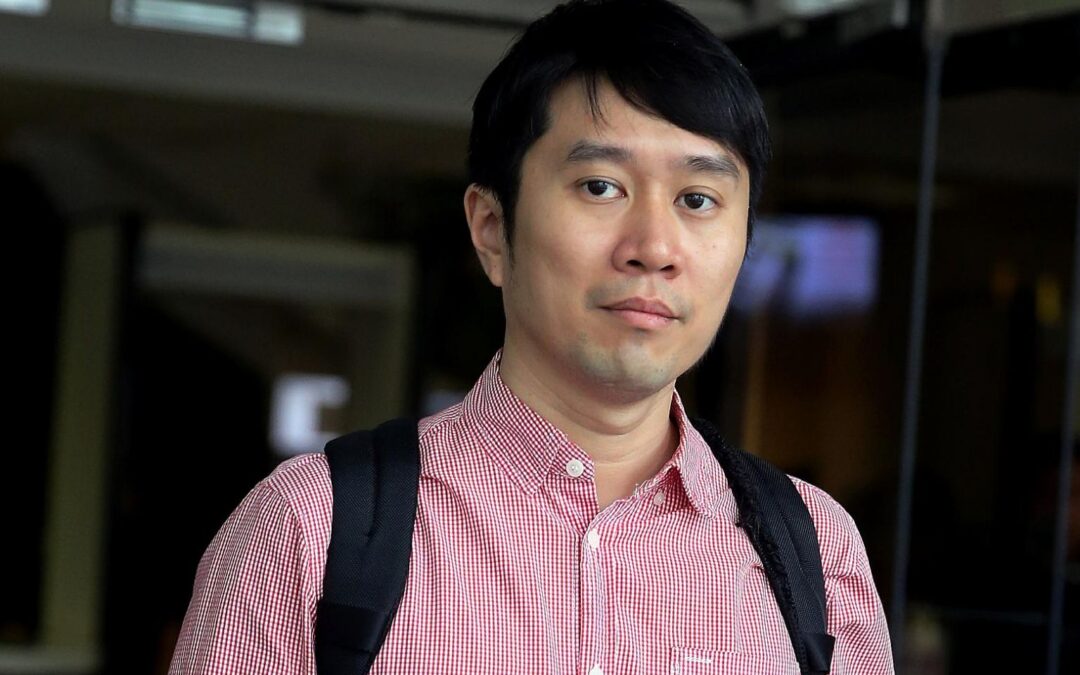
Aug 21, 2020 | News
The ICJ today condemned the conviction and imprisonment of human rights defender Jolovan Wham following the dismissal of his appeal by Singapore’s highest court in connection with a conference he had organized in 2016.
The ICJ urged the Singapore’s authorities to take action to quash the conviction and immediately release Wham from prison.
The ICJ further called on the authorities to refrain from targeting human rights defenders for harassment through unwarranted legal proceedings and to amend the country’s Public Order Act which formed the basis for the charges against Wham.
“Wham will now be in jail for organizing an indoor private discussion, in violation of his rights to free expression and freedom of association and peaceful assembly,” said Ian Seiderman, the ICJ’s Legal and Policy Director.
In November 2016, Wham organized a discussion entitled “Civil Disobedience and Social Movements” for approximately 50 participants in an indoor event venue, which included Hong Kong activist Joshua Wong as a speaker who called in via a video call. Prior to the event, Wham had not applied for a police permit to conduct the discussion, which was required under the Public Order Act (POA) as Wong is not a citizen of Singapore.
In 2019, Wham was convicted of violating section 16(1) of the POA and sentenced to a fine of S$2,000 (approx. USD 1,463) or ten days’ imprisonment in default by the District Court, following which his appeal was dismissed by the High Court. Yesterday, his appeal against the High Court decision was dismissed by Singapore’s apex Court of Appeal. Today, Wham began his prison term of ten days.
“The highly flawed Public Order Act was initially adopted to regulate public assemblies and processions, but has now perversely expanded in its scope of application to cover even private discussions,” said Seiderman.
In January 2019, the UN Special Rapporteurs on the right to freedom of opinion and expression, the situation of human rights defenders and the rights to freedom of peaceful assembly and association issued a joint statement expressing concern that the conviction was “clearly neither a necessary nor a proportional response to the actions of Jolovan Wham.” The Special Rapporteurs noted that the action had wrongly targeted the “legitimate exercise of the right to freedom of expression and freedom of peaceful assembly in Singapore.”
“The conviction and imprisonment of Wham marks a continued trend of abuse of poorly conceived laws to limit free expression, association and peaceful assembly in Singapore and harass individuals who seek to bring human rights violations to light in the country,” said Seiderman.
The ICJ calls on Singapore’s legislators also to act to amend other non-human rights compliant laws, including the Protection from Online Falsehoods and Manipulation Act (POFMA), Administration of Justice (Protection) Act (AJPA), and criminal defamation provisions under its Penal Code.
Wham was previously convicted in 2018 under the AJPA for alleged contempt of court following a comment on Facebook that “Malaysian judges are more independent than Singapore’s in cases with political implications”. He currently has active charges under the POA relating to the organizing of a vigil for a death row inmate and the holding of a silent protest on an MRT train and is being investigated under the POA for holding signs silently in solidarity with other activists.
See also
In a 2019 regional report, the ICJ found that in Singapore, non-human rights compliant provisions in POFMA, AJPA and other contempt of court provisions, civil and criminal defamation laws have been used to curtail freedom of expression and information online.
ICJ, Dictating the Internet: Curtailing Free Expression, Opinion and Information Online in Southeast Asia, December 2019
Similarly, the ICJ and other human rights organizations have called on Singapore authorities to drop investigations of human rights lawyer M Ravi and others under the contempt of court law and cease their harassment of human rights defenders. On 13 August, in relation to a death penalty case M Ravi is defending, the Court of Appeal opined that a statement made by the Attorney-General’s Chambers against the lawyer could have been “reasonably construed as intimidating”, offering a recent glimpse into the trend of legal harassment faced by human rights defenders in the country.
ICJ, ICJ and other groups call on authorities to drop investigations under abusive contempt of court law, March 2020
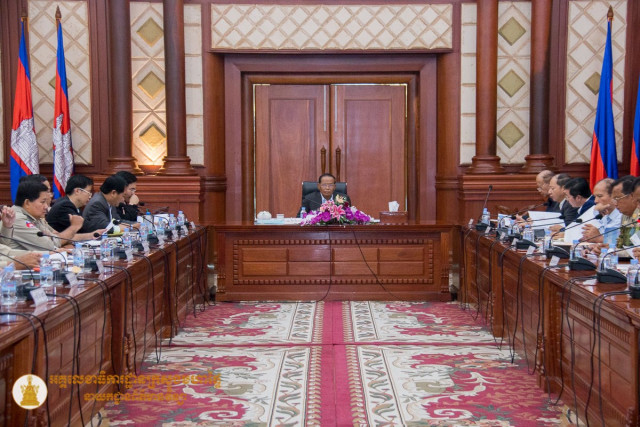
Aug 13, 2020 | Advocacy, News
Today, the ICJ and 64 civil society organizations jointly called on the Royal Government of Cambodia (“RGC”) to discard the draft Law on Public Order (“draft law”) which, if adopted, would breach Cambodia’s international legal obligations.
The draft law aims to regulate public spaces and public behavior within those spaces, covering aesthetics, sanitation, cleanliness, noise, and social values, all under the broad aim of maintaining “public order”. It sets out a number of specific activities that are prohibited, lists a range of penalties that may be imposed for violations, and grants unfettered enforcement powers to authorities across all levels of government, with the proclaimed objective of creating “a more civilized society”.
The organizations expressed concern that the draft law contains multiple overbroad and arbitrary provisions which violate numerous human rights protections enshrined in the Constitution of the Kingdom of Cambodia and human rights treaties to which Cambodia is party, including the International Covenant on Civil and Political Rights and the International Covenant on Economic, Social and Cultural Rights.
Amidst an ongoing crackdown on fundamental freedoms in Cambodia, a number of existing laws already grant overbroad and unfettered powers to the RGC and are regularly deployed abusively to undermine human rights. Adoption of this draft Law on Public Order would serve to facilitate a further deterioration of the human rights situation in Cambodia.
The joint statement is available in English here.
The joint statement is available in Khmer here.
Contact
Kingsley Abbott, Senior Legal Adviser, ICJ Global Accountability Initiative e: kingsley.abbott(a)icj.org
See also
ICJ, ‘ICJ and 31 organizations jointly urge Governments to call for respect of human rights in Cambodia’, 22 July 2020
ICJ, ‘Cambodia: State of Emergency bill violates the rule of law’, 8 April 2020
ICJ, ‘Misuse of law will do long-term damage to Cambodia’, 26 July 2018
ICJ report, ‘Achieving Justice for Gross Human Rights Violations in Cambodia: Baseline Study’, October 2017
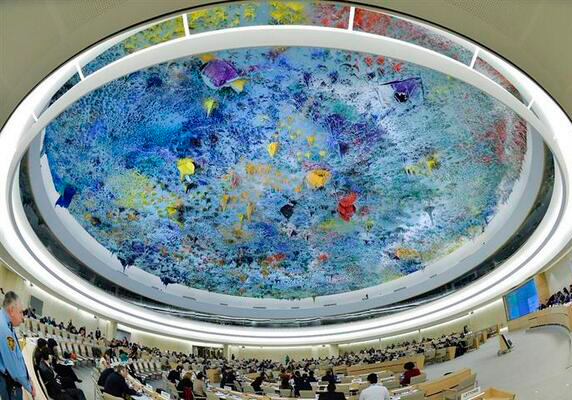
Jul 10, 2020 | Advocacy, Non-legal submissions
The ICJ and the World Organization against Torture (OMCT) today highlighted a range of human rights violations, including of freedom of association and assembly, in India’s repression of peaceful protests and the impact of COVID-19 measures in the country.
The joint statement “OMCT and ICJ welcome the Report of the Special Rapporteur on the rights to freedom of peaceful assembly and association and echo his concerns over the intensity and seriousness of the threats to the enjoyment of these rights, including the impact of current Covid-19 pandemic on the already fragile civic space.
We are particularly alarmed over the increasingly violent repression of dissent in India and the arbitrary detention and harassment of activists and human rights defenders by the state in relation to their participation in peaceful protests against the Citizenship Amendment Act 2019 (CAA), the National Population Register and the National Register of Citizens.
The repression of anti-CAA protests has been brutal, with the police reportedly using excessive force against demonstrators, including firing indiscriminately into crowds, using teargas and water cannons, beating bystanders and detaining and torturing protesters, including children. At least 31 persons were killed during these protests and scores were injured. No impartial and transparent investigations into the violence have been conducted to this day.
Reportedly fabricated charges of sedition, murder, and terrorism under repressive anti-terror and national security laws – such as the Unlawful Activities (Prevention) Act and the National Security Act – have been filed against activists and human rights defenders participating in the protests. Those arrested and detained include Gulfisha Fatima, Natasha Narwal, Devangana Kalita, Khalid Saifi, Meeran Haider, Shifa ur Rehman, Isharat Jahan, Dr. Kafeel Khan, Sharjeel Imam, Akhil Gogoi and Asif Iqbal. They are still in prison despite repeated calls for their release by national and international human rights groups and the United Nations.
Severe restrictions on freedom of peaceful assembly and association have been imposed in the framework of the Covid-19 emergency. These include blanket shutdown of internet services and the imposition in several areas of Section 144 of the Criminal Procedure Code, a colonial law banning public protests and gathering of more than five people. While appreciating India’s efforts to prevent the spread of Covid-19, we remind the government that restrictions must meet the requirements of legality, necessity and proportionality and shall not be abused to muffle dissent.
We call on the Government of India to take urgent steps to ensure that its people enjoy the rights to express dissent and to participate in peaceful protests without fear of being arrested, brutally beaten, tortured or killed. The right to life and from the prohibition of torture and other ill treatment as well as the rights to freedom of expression, association and assembly are protected under international law including the International Covenant on Civil and Political Rights to which India is a party.
We further call for a thorough, prompt, transparent and impartial investigation into allegations of unlawful use of force by police, and for the immediate release of all unjustly detained activists and HRDs.”
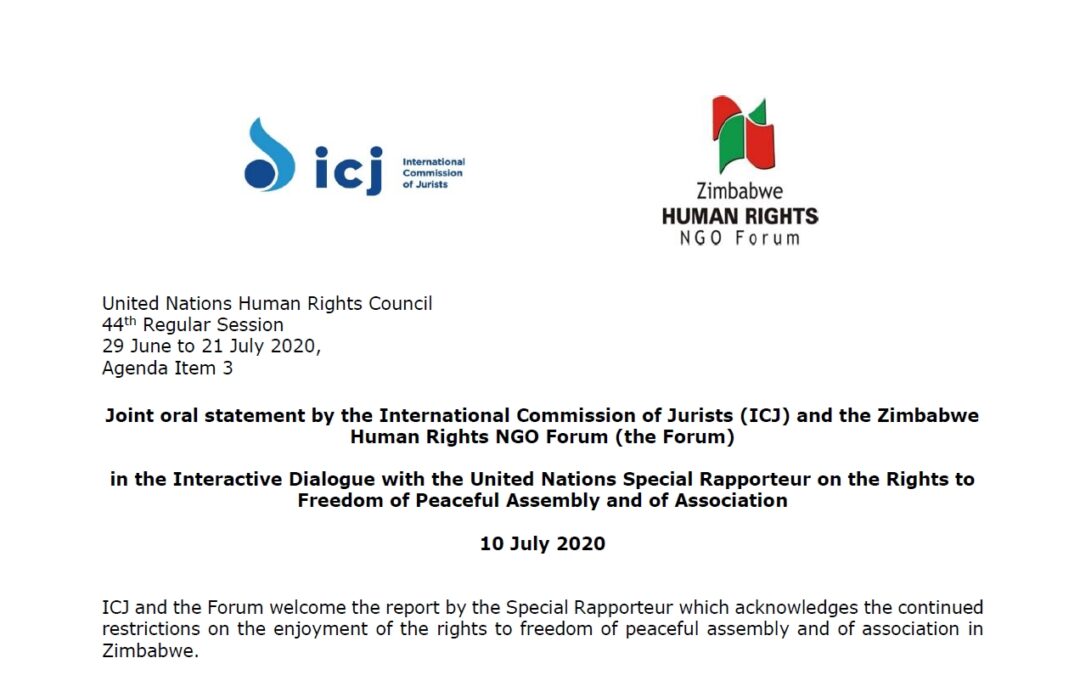
Jul 10, 2020 | Advocacy, Non-legal submissions
The ICJ and the Zimbabwe Human Rights NGO Forum highlighted today concerns on freedom of association and assembly in Zimbabwe, on the occasion of discussion by the Human Rights Council of a report of the relevant UN expert’s visit to the country.
The statement was prepared for delivery in an oral interactive dialogue with the UN Special Rapporteur on freedom of association and assembly on his reports to the Human Rights Council, including the report of his visit to Zimbabwe in September 2019.
The statement could not actually be read aloud due to the limited time for civil society statements in the dialogue.
The joint statement reads as follows:
“ICJ and the Forum welcome the report by the Special Rapporteur which acknowledges the continued restrictions on the enjoyment of the rights to freedom of peaceful assembly and of association in Zimbabwe.
The report mentions the use of excessive and lethal force by security forces; the use of military forces in managing protest; and the subsistence of repressive laws that curtail the enjoyment of the rights to Freedom of assembly and association.
ICJ and the Forum agree with the findings by the Special Rapporteur that the use of disproportionate and excessive force by the security has resulted in massive violations against protestors. In January 2019 following the “shutdown protests”, the Forum documented at least 1800 violations including 17 killings, 16 cases of rape and 81 victims were treated for gunshot wounds while ICJ documented at least 77 incidences of violation of fair trial rights of protestors.
The Maintenance of Peace and Order Act [Chapter 11:23] (MOPA) was enacted into law in November 2019 to repeal the Public Order and Security Act (POSA). MOPA reveal common similarities with POSA and maintains problematic provisions that do not guarantee the right to peaceful assembly.
ICJ and the Forum wish to draw the attention of the Special Rapporteur to the ongoing violations which have escalated in the context of the COVID-19 lockdown enforcement and the declining economic and social situation in Zimbabwe. While public health measures are crucial, these must be advanced in ways that do not unduly infringe on the rights to freedom of peaceful assembly and of association.
The government of Zimbabwe must be encouraged to comply with International human rights standards and guidelines such as the Guidelines for the Policing of Assemblies by Law Enforcement Officials in Africa; the United Nations Basic Principles on the Use of Force and firearms by law enforcement officials and the 10 principles for the Proper Management of Assemblies developed by the mandate in 2016.
ICJ and the Forum would to like to ask the SR what follow up he will do to monitor whether the Government of Zimbabwe complies with its international human rights obligations?”
The statement can be downloaded in PDF format here: UN-HRC44-statement-SRFoAA-2020
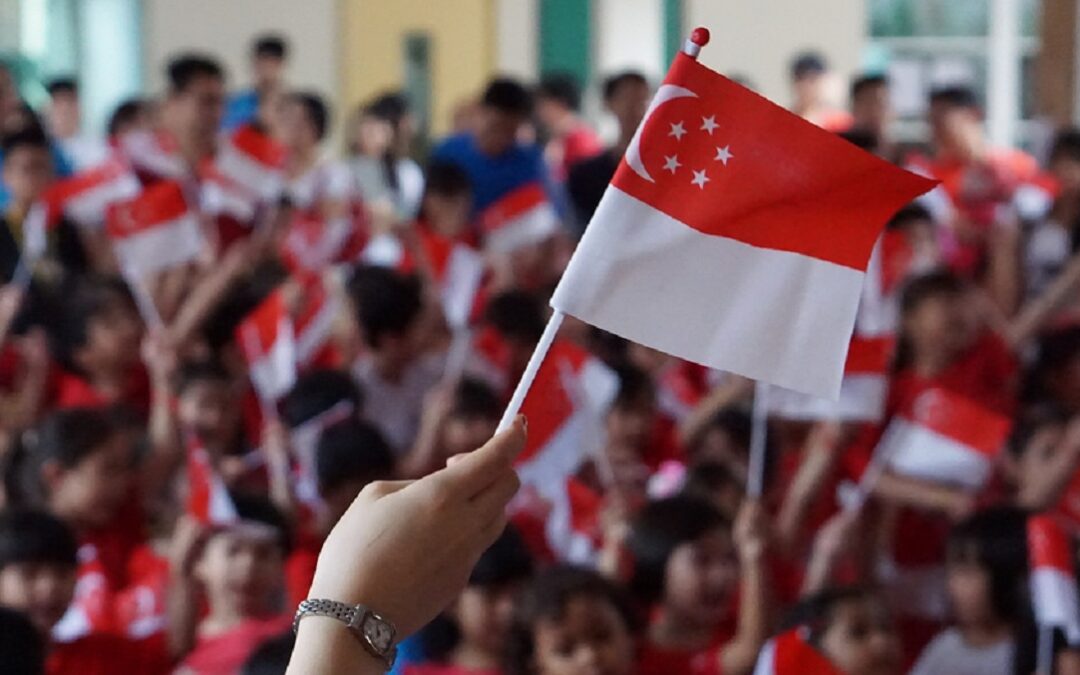
Jul 3, 2020 | News
In the lead-up to general elections on 10 July, today, the ICJ, Asian Forum for Human Rights and Development (FORUM-ASIA) and CIVICUS: World Alliance for Citizen Participation (CIVICUS) urged all political parties and parliamentary candidates in Singapore to commit to respecting and protecting human rights and fundamental freedoms as part of their mandate.
The organizations noted the ongoing abuse of legal frameworks by the State to limit the rights to freedom of expression, information, association and peaceful assembly in Singapore. These included the use of civil defamation suits and criminal defamation charges; contempt of court provisions including under the Administration of Justice (Protection) Act; the Protection from Online Falsehoods and Manipulation Act; and the Public Order Act to penalize and harass individuals for mere exercise of their fundamental freedoms.
The organizations urged all political parties and parliamentary candidates to address concerns raised by these laws and ensure fundamental freedoms – including the rights to expression, information, association and peaceful assembly – remain at the forefront of the debate in Singapore.
The open letter is available here.
In a 2019 ICJ report on freedom of expression and information online across Southeast Asia, the ICJ highlighted how defamation provisions, the AJPA and POFMA had been wielded by the State to curtail free speech and access to information online by targeting critical dissent of the regime by human rights defenders, lawyers, independent media outlets and members of the political opposition. The report detailed problematic provisions in the laws and selected case studies detailing this trend.
Contact
Frederick Rawski, ICJ Asia and Pacific Regional Director, e: frederick.rawski(a)icj.org
See also
ICJ, ‘Dictating the Internet: Curtailing Free Expression, Opinion and Information Online in Southeast Asia’, December 2019









